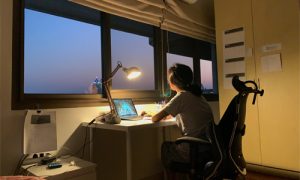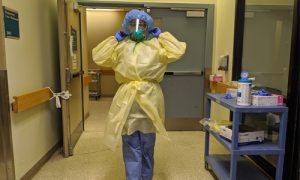
Last year, shortly after the province-wide lockdown, the Library put out a call to Ryerson community members asking for contributions to a digital archive.
The COVID-19 Community Archives project was born as a way to help the Ryerson community collectively record lived experiences during a global pandemic that swiftly altered the way we studied, attended class, worked, bought groceries and visited with family and friends.
One year later, we are now living through a third wave that has continued to push us to establish new routines. Students and faculty have nearly completed a full year of online, remote learning. Researchers have sought new ways to access materials and conduct research. Events and workshops have brought people together virtually to share discussions and knowledge online. Libraries have set up study space booking systems and ways of delivering print items without contact, while increasing digital collections and research help services.
Now, as vaccine rollout increases, there is some light but continued concern as variants spread.
Throughout the pandemic the Library has continued to collect images, photographs, writing and poetry from our community, documenting the ways we have come to experience the world. “We’ve received essays and audio journal entries reflecting on the impact of COVID-19 on student life, as well as our relationship with outdoor space and technology,” says Special Curatorial Specialist, Olivia Wong.

Wong notes that in addition to local experiences, students have also provided their global perspectives. “Some submissions are from international students who documented their journey flying home early in the pandemic and shared their experience attending classes while being in a completely different time zone than Toronto,” says Wong
The COVID-19 community archives is a growing repository of grassroots primary source documentation which provides access to a collection of first-hand accounts of the pandemic experience for researchers who will investigate and study this time. “Through this archive, we’re collecting the first-hand experiences of our community, and making these valuable primary sources available to students, researchers, and historians in the future,” says Alison Skyrme, special collections librarian.

“With the majority of our learning and working happening in private, our individual experiences have become invisible, particularly for students,” says Skyme. “Our sense of community has changed dramatically. The way we learn, teach, and socialize is completely different, and it’s still unknown how this experience will change us or alter our “normal” moving forward.”
For more information on the project and how to submit content, visit the Archives and Special Collections Covid-19 Community Archives